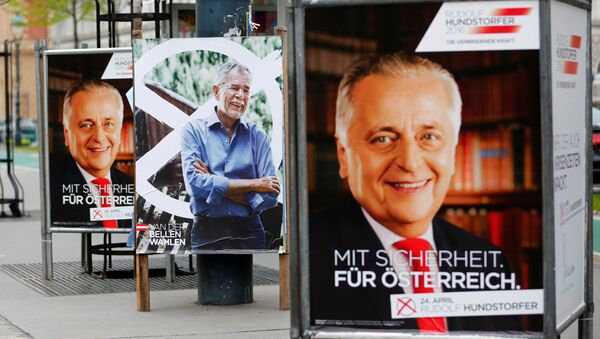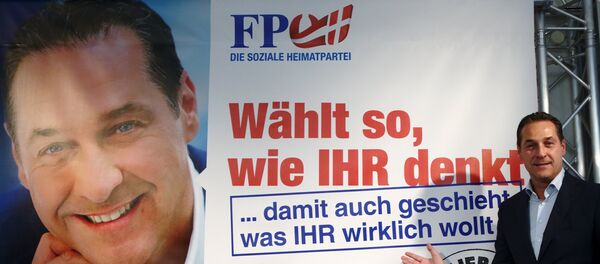On Sunday, Austria held presidential elections. Hofer, the Freedom Party's candidate, gained 36 percent of the votes followed by Alexander van der Bellen from the Greens with 20 percent. Independent candidate Irmgard Griss came third with 18.5 percent of the votes, leaving far behind candidates from the two coalition government’s parties, the center-left Social Democratic Party and the center-right People’s Party, with 11 percent each.
"The result of yesterday’s election was not predictable, and it was not predicted by any opinion polling. So it was quite a surprise and a shock for many people in Austria," Reinhard Pickl-Herk said.
"We still hope that it is possible to win the election, although it might not be that easy," the Green Party spokesman noted, commenting on the second round of the president’s election due to take place on May 22.
Hofer sharply criticized the EU-Turkey deal tackling the migrant flow and stated that Islam could not be part of the Austrian culture. During his election campaign, he called for further limits on migrants and stricter rules for asylum seekers as well as a break-up of the two-party system that has dominated Austrian politics for the past several decades.
Hofer’s result was the most successful one ever for Austria’s far-right Freedom Party in a national election.
Though the role of the head of state in Austria is largely ceremonial, the president swears in the chancellor, has the power to dismiss the cabinet and is a commander-in-chief of the nation’s military forces.




